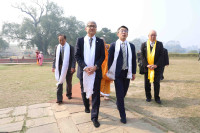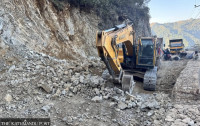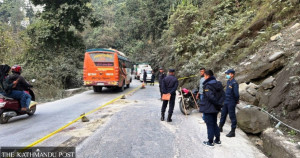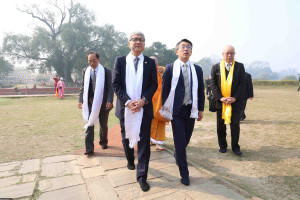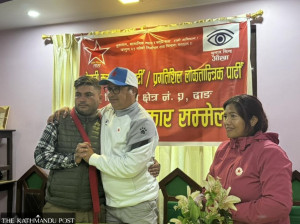Lumbini Province
Casteism is so deeply entrenched, not even law can deter it
Elected representatives from Dalit communities say they are discriminated by their own colleagues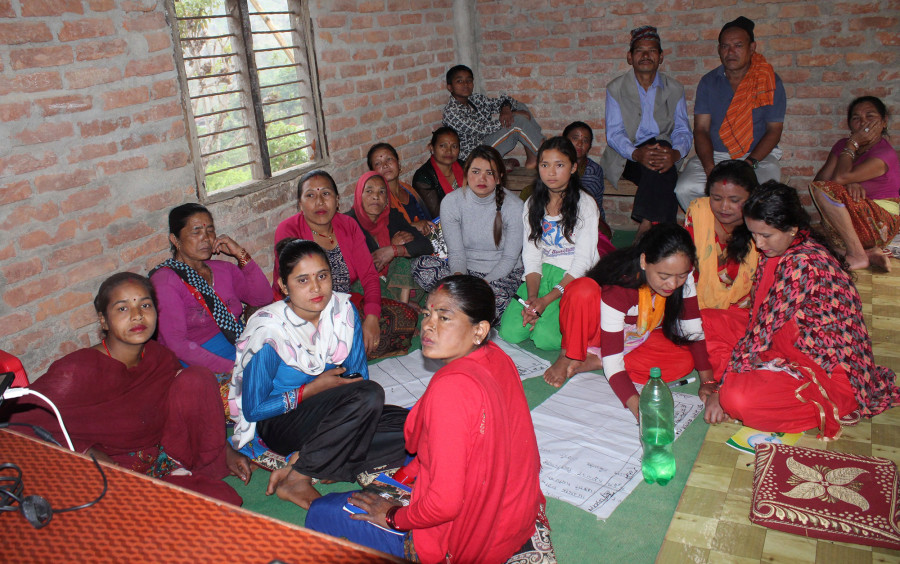
Province 5 Bureau
Elected local representatives from Dalit communities in Province 5 say that they continue to be treated as low-caste people in their constituencies.
Though the constitution has made caste-based discrimination a punishable crime, casteism and untouchability custom are still prevalent in many parts of the province.
Tulasa Sunar, deputy chief of Gaumukhi Rural Municipality in Pyuthan district, says as a Dalit she faces discrimination every day.
“We are not allowed to enter some houses or eat together with non-Dalits. Whatever the legal provisions, untouchability custom is very much alive,” she said.
There are more than 60 elected Dalit representatives in nine local units of Pyuthan. And most of them say they feel unfairly treated in their day-to-day lives.
The concept of casteism, according to Tulasa, is so deeply entrenched in the community psyche that not even the law can deter a person from a so-called high caste from denigrating and dehumanising a Dalit.
It would be facile to argue that people like Tulasa ought to be more assertive and fight for equal and fair treatment for Dalits. They are facing against centuries-old plague of casteism, passed down from generation to generation like a family heirloom.
“We are invited to various functions as elected representatives, but we aren’t allowed to participate alongside others. Our social conditioning is such that villagers who have known us for years are not going to treat us as their equals,” said Mana Kumari Bishwakarma, an elected Dalit representative from Rolpa district.
For Rita BK, not much has changed since she was elected as a member of the District Coordination Committee of Rukum (East). She remains a lowling in the eyes of her non-Dalit colleagues, to say nothing of the people in her village.
“I don’t even know what my role is in the office. I am not kept abreast of the issues that are in discussion. My job essentially could be summed as signing documents for decisions that I have no prior knowledge of,” said Rita. “How could we fulfil the expectations of those who elected us when we are excluded from decision-making roles?”
Ishwori Pariyar, another elected Dalit representative from Nepalgunj, Banke, shared a similar experience of being excluded by her colleagues.
“I am never called for ward office meetings. I even brought this issue before my colleagues once, but I continue to be treated as a pariah,” she said.
Since confronting her colleagues, Ishwori has been invited to only one meeting.
The elected Dalit representatives in Province 5 believe that legal provisions and political commitments are not adequate to end casteism. They say the poor economic status of Dalit communities is also a major factor as to why Dalit people continue to be discriminated against in Nepali
society.
“For generations, our political system and tradition have immiserated the Dalits to maintain and nurture caste hierarchy. So, political and social awareness will not be enough to end untouchability. Dalit communities must be lifted out of poverty in order to effectively eliminate casteism and untouchability from our society,” said Karma Lal Pariyar, a member of the District Coordination Committee of Rolpa.
(With inputs from our local correspondents)




 16.12°C Kathmandu
16.12°C Kathmandu

